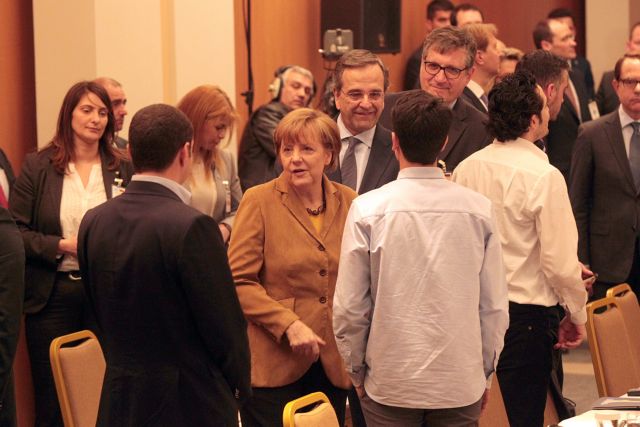While Angela Merkel’s trip to Athens on Friday was rather brief, the German Chancellor had the opportunity to meet representatives of established and up-and-coming enterprises in Greece from the innovation and technology sectors, as well as the more traditional manufacturing, trade and tourism sectors of the economy.
The owner of the “Epilektos” textile industry Evripidis Dontas urged the German Chancellor to not veto the Greek government’s decision to reduce the cost of energy. Mrs. Merkel responded that while the request was fair, “Greek cotton could not compete against cotton from Bangladesh”. Mr. Dontas responded that BMW and Audi use Greek cotton in their car seats, which Mrs. Merkel admitted she was unaware of, before replying that “you are probably not doing enough for me to know”.
Mrs. Merkel was also heard complaints by Alexandra Pitta, of Attiki Honey, who noted that in many EU member states honey from third countries is imported and falsely marketed as European, causing serious problems to producers. The German chancellor agreed to forward the matter to the relevant inspection agencies.
Aside from the cost of energy, the entrepreneurs requested that the Greek Investment Fund, which is supported by the German KfW investment bank, be activated as soon as possible, in order to help SMEs. Other demands included the reduction of wage costs, which is currently far higher than the EU average; insurance contributions in Greece amount to 49% of the overall cost, compared to the 26% EU average. Additionally, the requested the agricultural and manufacturing sectors be supported.
The German Chancellor was impressed with a young entrepreneur who reported that his software company is currently working with Siemens and that his firm is exporting its technology and expertise, based on research conducted at the Athens Polytechnic University.





